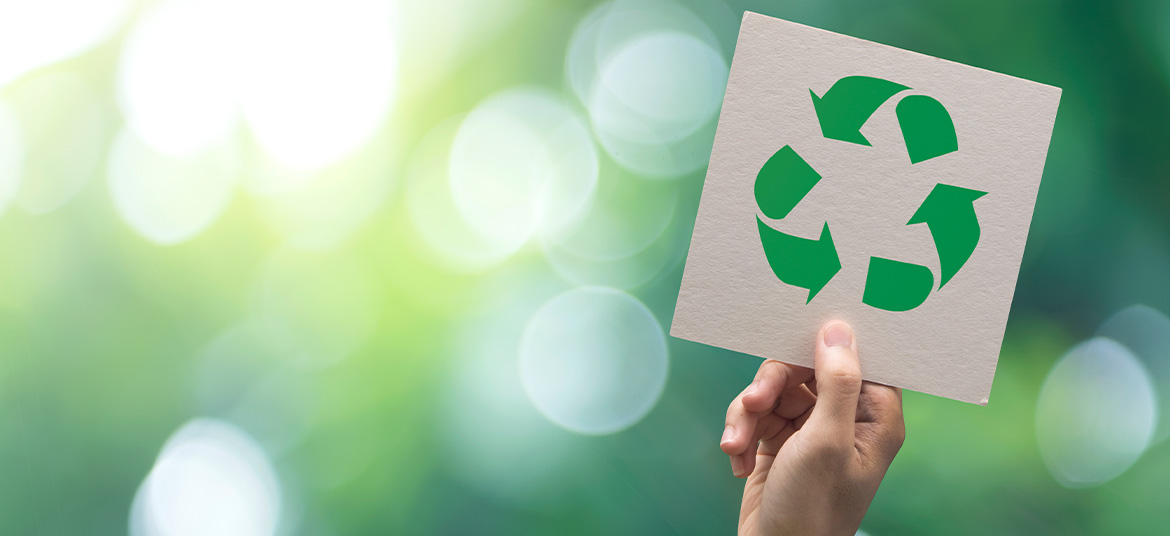
Five Ways FMCNA Is Reducing Its Environmental Impact | FMCNA
As a company, we strive to better the lives of our patients, employees, and the communities we serve through our commitment to the environment. As an industry leader, it is important to live our values and adopt sustainable solutions. Fresenius Medical Care North America (FMCNA) has put initiatives in place to reduce solid and medical waste, recycle resources, and conserve water and energy at our centers, fostering an environmentally conscious mindset across the company.
Recycling Dialysis Machines
Finding environmentally conscious ways to dispose of old dialysis machines means generating less waste. With newer models replacing the old ones, new practices are being adopted to reuse and recycle parts of machines that are no longer in use. Around 67 percent of a typical dialysis machine is composed of recyclable metal such as copper, aluminum, and steel, while the plastic, bulbs, and circuit boards found in machines can be recycled as well. In 2019, parts from more than 5,000 machines were retired from FMCNA dialysis centers across the United States, diverting over 670 net tons of metal from landfills. Recycling parts from dialysis machines reduces our environmental impact and provides another life for these components recovered in the process.
Reusable Sharps Containers
In many dialysis centers, needles and other sharp objects are discarded in plastic containers to ensure safe and efficient disposal. However, when the containers need to be replaced, historically they are autoclaved, shredded, and sent to landfills. The impact of this previous process released thousands of pounds of carbon into the atmosphere as the plastics decayed. In an effort to reduce these emissions, FMCNA shifted to reusable sharps containers. Today, reusable containers are transported to a facility where they are emptied, washed, and disinfected, allowing each container to be used up to 600 times. Initiatives like FMCNA’s Reusable Sharps Container Program have allowed for the reuse of 112,000 containers, eliminating 900 tons of plastic waste and preventing 336,000 pounds of carbon emissions.
Using Paper Cups
Though something as simple as cups might not seem to have any significance, they are a large part of in-center dialysis. One-ounce plastic medicine cups were used frequently to distribute capsules and gel caps to patients, and a single facility used 30 to 50 cups in one day. This equated to each facility disposing of 9,000 to 15,000 plastic cups in a year, all of which were sent to landfills where they released toxic gasses as they decomposed. Thanks to recent efforts, plastic cups have been replaced by paper cups, which take significantly less time to decompose (around 30 years compared to 450 years for plastic cups). Plus, paper is much safer for our air and water systems. Paper cups are now the standard, and FMCNA estimates a company-wide reduction of 46 million plastic cups a year.
Reusable Mircera Shippers
Dialysis treatment requires the use of many different components, all of which need to be delivered individually to centers. Mircera, an agent used for treating anemia associated with CKD, is one important component, and FMCNA has launched an initiative to reuse its shipping containers. These containers were once sent to dialysis centers and disposed of after a single use, sending over 70,000 individual containers to landfills a year. Now, these containers are sent to dialysis centers, emptied, returned, cleaned, and put back into use, creating a sustainable cycle around a major component of dialysis treatment. By incorporating reusable containers into centers, FMCNA is simplifying the Mircera unboxing and disposal process for center employees and reducing the amount spent on Mircera shippers, all while reducing the amount of solid landfill waste produced by centers.
Recycling Blue Drums
With so many different fluids used to filter blood, it’s crucial to have sustainable means to store them. In centers, FMCNA uses 55-gallon Blue Drums to contain NaturaLyte® and Citrasate®, two concentrates needed for blood filtration. To recycle these drums, the center holds onto the empty containers until the next scheduled delivery and the delivery driver takes them back. Once back at the warehouse, the drums undergo a quality control process, are refilled, and sent back out. FMCNA encourages all of its centers to reuse their Blue Drums, and has been doing so for years. Last year, over 55,000 drums were returned from centers for future reuse. Every drum that’s reused is equivalent to one metric ton of carbon waste reduction, helping to reduce carbon emissions and lessen the impact to the environment.



